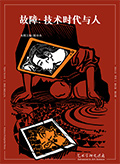

本文聚焦居伊·德波的电影作品及他宣称其作品不适用于“电影作品”的悖论。德波认为电影是异化的交流形式, 其内在逻辑是反对电影成为一种样貌的景观社会而强化景观的统治。他通过对电影总体性的否定, 呼应情境主义者解放日常生活的目标。本文分析了德波如何通过对媒介自身的否定与反动的核心战术———“异轨”, 借用现有形式, 从内部瓦解, 从而创造了批判的张力和可能性。在当今背景下, 随着人们从被动走向主动参与影像生产, 夺回观看的主体性成为可能。作者认为战争影像是一种重新夺取影像、赋予其新的意义的方式, 通过这些影像, 对景观发起视觉反抗, 进而构建属于自己的世界影像。
This article focuses on Guy Debord’s films and his paradoxical claim that his works do not qualify as “films”. Debord viewed cinema as an alienated form. of communication, whose inherent logic opposes the transformation of cinema into a spectacle, a process that would reinforce the dominance of the society of the spectacle. By rejecting the totality of cinema’s conventional narrative and form, Debord aligns with the situationists’ goal of liberating everyday life. This article analyzes Debord’s core tactic of Détournement as a form. of negation and opposition to the medium itself, repurposing existing forms and subverting them from within to generate critical tension and open up new possibilities. In the contemporary context, as individuals shift from passive consumers to active participants in image production, reclaiming the agency of viewing becomes possible. The author argues that war imagery is a means of reclaiming visual representation and assigning it new meaning. Through these visuals, a form. of visual resistance is mounted against the spectacle, thereby constructing a personal image of the world.